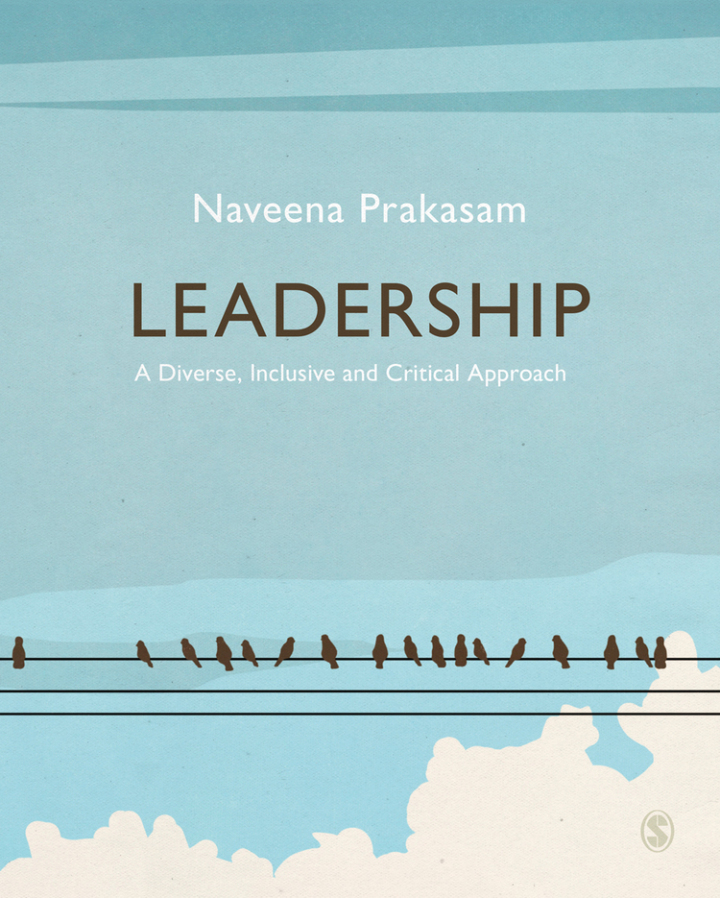
Leadership 1st Edition - A Diverse, Inclusive and Critical Approach
PUBLISHER: Sage
Trường ĐH, Nhóm, Thư Viện: Gọi 0915920514 để báo giá eBook hosting trên Vital Source hoặc mua Sách In
Khả năng lãnh đạoMột cách tiếp cận đa dạng, toàn diện và quan trọngCuốn sách này khám phá các khía cạnh khác nhau và các cách tiếp cận trên phạm vi rộng đối với khả năng lãnh đạo - từ sự phát triển của khả năng lãnh đạo tập trung vào các đặc điểm, đến đánh giá nghiêm túc các phong cách và cách tiếp cận lãnh đạo khác nhau. Các chương khám phá các phương pháp lãnh đạo theo chủ nghĩa xây dựng xã hội; lãnh đạo quan hệ; đạo đức, khả năng lãnh đạo và quản lý nhân sự chiến lược; quyền lực và mặt tối của sự lãnh đạo, cũng như những tác động của sự lãnh đạo trong kỷ nguyên kỹ thuật số và sự lãnh đạo trong thời đại giám sát ngày càng gia tăng. Cuốn sách phê phán sự thống trị của các phương pháp lãnh đạo lấy nam tính làm trung tâm của phương Tây, người da trắng và nam tính đồng thời xem xét vấn đề giới tính và phân biệt chủng tộc trong vai trò lãnh đạo cũng như các vấn đề liên quan đến việc loại trừ và hòa nhập. Các tính năng bao gồm: · Các nghiên cứu trường hợp phi phương Tây mang lại cái nhìn toàn cầu thực sự. · Tính năng Lãnh đạo giải thuộc địa nêu bật các nguồn và quan điểm đa dạng nhằm khuyến khích bạn nhìn xa hơn tiêu chuẩn lãnh đạo truyền thống. · Các câu hỏi phản ánh khuyến khích tư duy phản biện. Thích hợp cho sinh viên đại học và sau đại học đang theo học về lãnh đạo. Tiến sĩ Naveena Prakasam là giảng viên về Hành vi tổ chức và Quản lý nguồn nhân lực tại Đại học Southampton.
List of case studiesAbout the editor and contributorsAcknowledgementsGuided tourOnline resourcesPart 1 Setting the scene1 Introduction (Naveena Prakasam)The global contextUnderstanding leadership – a note from the editorWhat do diverse, inclusive and critical mean?DiverseInclusiveCriticalParadigmsOverview of chapters2 Evolution of leadership theories 1: Traits and skills (Naveena Prakasam)Chapter objectivesIntroductionGreat Man Theory and other early approachesPsychology-based studies on traitsBig Five dimensionsCritique and resurgenceImplicit leadership theory and leadership categorisationCharismatic leadershipDark traitsContemporary researchTabula rasa and leadership skillsCognitive skillsInterpersonal skillsBusiness skillsStrategic skillsConclusionKey summaryFurther reading3 Evolution of leadership theories 2: Leadership styles, leader versus manager debate (Naveena Prakasam)Chapter objectivesIntroductionContext and leadershipCharismatic-transformational leadershipPseudo-transformational leadership and the dark side of charismaTransactional versus transformational leadershipCritique of charismatic-transformational leadershipAuthentic leadershipCriticisms of authentic leadershipLeader versus manager debateConclusionKey summaryFurther reading4 The social construction of leadership (Naveena Prakasam)Chapter objectivesIntroductionSocial construction of realitySocial construction of leadershipThe social construction of authentic leadershipRomance of leadershipFollowers and followershipImplicit followership theoriesCategories of follower-centred and followership approachesConclusionKey summaryFurther readingPart 2 Connectedness and context5 Relational leadership (Naveena Prakasam)Chapter objectivesIntroductionWhat is relational leadership?Classification within relational leadership: Entity perspective and relational perspectiveExamples of relational leadership models/theories within the entity perspectiveLeader-member exchange (LMX) theoryHollander’s relational theoryCharismatic relationshipRelational and collective selfNetwork theoriesRelational perspectiveEmpathyGender and relational leadershipIndigenous Māori perspective on relational leadershipCollective leadershipConclusionKey summaryFurther reading6 Leadership in crisis: What we can learn from entrepreneurs and intrapreneurial approaches (Louisa Huxtable-Thomas and Russ Huxtable)Chapter objectivesIntroductionWhat does the entrepreneur have to do with leadership?…‘ships’ that pass in the nightWhy ‘entrepreneurs?’ and does entrepreneurial leadership exist at all?Entrepreneurial leadership – moving away from the blandness of corporate leadershipMeasuring entrepreneurial leadershipEntrepreneurial leadership theories – leadership during venture creationTwo sides of the same leadership – is it what the entrepreneur does or how they lead?How the entrepreneur provides an opportunity to consider more diverse leaders and leadershipHow best to lead in a crisis?Why are entrepreneurial leaders useful in a crisis and not others?Entrepreneurial leadership at the top and bottomConclusionKey summaryFurther readingPart 3 Contemporary issues and leadership7 Power and the dark side of leadership (James Wallace and Naveena Prakasam)Chapter objectivesWhy study power and leadership?What is power?Dahl, Bachrach and Baratz, and Lukes: one-sided, two-faced and three-dimensional powerFoucault: power without the powerfulCritical leadership studiesExcessive positivityGendering of leadershipCult-ish approachAnti-leadershipPostcolonial perspectivesDark side: The toxic triangleConclusionKey summaryFurther reading8 Leadership, ethics and strategic HRM (Geraint Harvey and Carl Rhodes)Chapter objectivesEthics and strategic HRMLeadership ethics?Agonism and ethical leadership in people managementConclusionKey summaryFurther reading9 Leadership and the digital age (Desireé Joy Cranfield, Isabella Venter and Andrea Tick)Chapter objectivesIntroductionThe digital ageTechnology, digitalisation and digitisationThe influence of disruptive technologies and business models on leadership and managementThe influence of globalisation on leadership and managementOpportunities and challenges of the digital ageOpportunitiesChallenges for leadership in the digital ageThe digital age and the implications for management and leadershipImportance of leadership in the digital ageThe influence of the digital age and the changing demands of leadershipLeadership competencies, personality and behaviours for the digital ageLeadership styles for the digital ageLeadership training considerationsConclusionKey summaryFurther reading10 Datafication, surveillance and leadership (Naveena Prakasam)Chapter objectivesIntroductionThe relevance of leadershipSnowden and surveillanceSurveillance theoriesFoucault and BenthamDeleuze and surveillanceSurveillance capitalismSocial relations, power and dataficationSurveillance, datafication and inclusionConclusionKey summaryFurther reading11 Gender, race and leadership (Naveena Prakasam)Chapter objectivesIntroductionGender and leadershipFeminist phenomenology and leadershipRace and leadershipIntersectionality and leadershipDecolonial and postcolonial approachesConclusionKey summaryFurther reading12 Conclusion (Naveena Prakasam)IntentionsPersonal reflections and lessonsLesson one: There is not one thing called leadershipLesson two: Power is central to leadershipLesson three: Diverse and inclusive perspectives are more important than everCurrent and future trendsGlossaryReferences per chapterIndex















